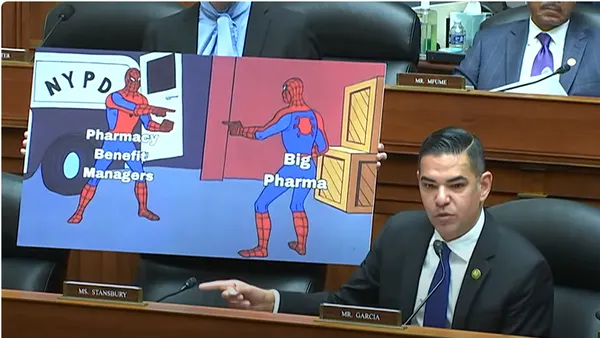Dive Brief:
- A prominent Democrat lawmaker is questioning major Medicare Advantage insurers about their use of artificial intelligence to make care decisions.
- In letters sent to CVS Health, UnitedHealthcare and Humana on Thursday, Sen. Richard Blumenthal, D-Conn., pressed the payers on whether they make coverage decisions based on AI tools or predictive technology, which products are in use and whether they have implemented any guardrails to prevent the tools from influencing providers’ work.
- The letter comes a year after the Senate Permanent Subcommittee on Investigations, where Blumenthal is ranking member, released a report criticizing the insurers for using predictive technology to deny claims for post-acute care.
Dive Insight:
Insurers’ growing use of AI in coverage decisions has faced scrutiny from some lawmakers concerned that the technology could deny care unfairly, especially in the MA program. UnitedHealth and Humana have already faced class action lawsuits over their use of predictive technology in coverage determinations.
Last year’s report from the Senate Permanent Subcommittee on Investigations found the number of prior authorization requests or denial rates for post-acute care increased at the three major MA payers as they invested in predictive technologies. Now, Blumenthal is following up on the analysis. Since the report’s publication, the rapid development of AI in healthcare has “only increased the possibility of its abuse,” he wrote in the letter.
For example, an analysis published last year by the American Hospital Association found care denials in commercial and MA plans increased from 2022 to 2023, in part because of the increased use of AI tools.
And regulators and the public have limited information on insurers’ coverage denials and the role AI plays, Blumenthal wrote.
“As a result, the American people continue to be reliant on little more than insurers’ promises that they are not taking potential life-and-death decisions away from doctors and giving them to machines,” he said.
AI is increasingly being implemented by payers to handle tasks like prior authorization, where providers have to obtain approval before offering certain services or medications.
Proponents say the technology could reduce administrative work and speed prior authorization requests, a process that’s frequently criticized by providers for taking too much time and delaying necessary care.
Meanwhile, federal oversight of AI in healthcare is relatively nascent, and the Trump administration plans to pursue a deregulatory agenda to spur development of the technology in the U.S.
The CMS has also moved to use AI in traditional Medicare. Under the Wasteful and Inappropriate Service Reduction, or WISeR, pilot program, doctors in a select group of states will be required to secure AI-backed prior authorization for some services.
A CVS spokesperson told Healthcare Dive the company had received the letter and will respond. UnitedHealth and Humana didn’t respond to requests for comment on the letter by press time.















